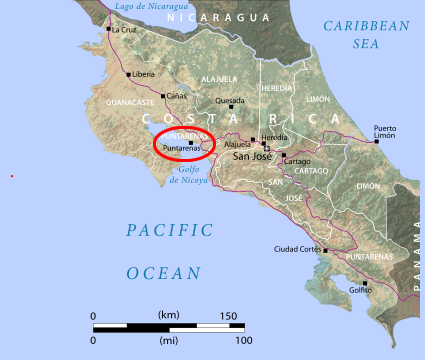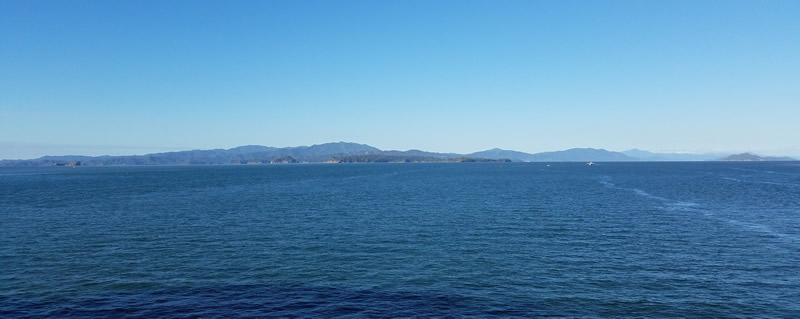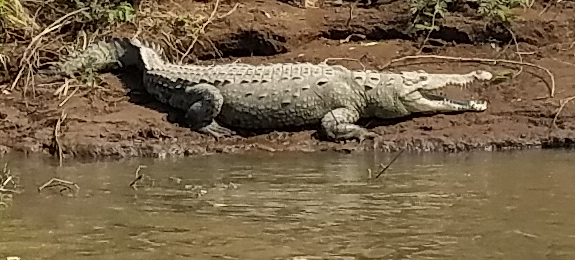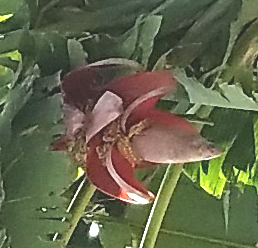Costa Rica (January 11, 2017)

Costa Rica, at least the small amount that we saw on the Pacific side is very beautiful. Like Panama it has a rainy season (May to  December) and a dry season the other months. There are an enormous number of volcanoes in the country, most of which chose to be sleeping today. When they do erupt, they leave a layer of ash which can mutate to a very rich soil perfect for growing coffee.
December) and a dry season the other months. There are an enormous number of volcanoes in the country, most of which chose to be sleeping today. When they do erupt, they leave a layer of ash which can mutate to a very rich soil perfect for growing coffee.
Due to its geological location, Costa Rica has frequent earth quakes – apparently every day, but to my knowledge we did not experience once. Our port here was Puntarenas, but we motored south to Puerta Caldera where we experienced the flora and fauna of the Tárcoles River National Park. On a boat trip we saw many birds, a crocodile and various plants.

The open mouth indicates that he is too hot and is cooling off. Why he does not just get into the water I do not know, except the brain of the crocodile is very small...
The buildings here are mostly single story – for protection against earthquakes. In 1969 they had a severe quake which killed about 500 people. Learning from that in 1971 they started making all buildings "earthquake proof." The result was that in the past two severe quakes no one died.
Bananas are also an export. (See the banana flower below.) When Dex was living in Clearwater as a youngster he had a banana tree which to his great disappointment, never produced bananas. Seems they need a tree of the opposite sex...

The country is fairly agricultural, but of course being warm in the winter it is also tourist oriented. There are a fair number of expats living here. Eco tourism is high here, with tours that focus on either flora, fauna, or agriculture. Of course there are the many beautiful flowers that are endemic in the tropics. I was disappointed to not see wild orchids, but they only bloom in the rainy season – and I was not disappointed to miss that.
Although Columbus named this area a "rich coast," this area was fortunate that there was little gold as well as few indigenous people, leaving the Spanish with little interest in the area. Add to that, the viceroy for the area lived in Guatemala, a treacherous, lengthy trip by land and they were left mostly alone.
Their democracy is 60 years old and is the longest democracy in Latin America. Education is free through high school and the literacy rate is about 95%. It is also the happiest country in the world, although who decides this I do not know.
This would be a great place for bird watching. Besides all the tropical birds there are northern birds who migrate here for the winter.
At lunch we experienced a Costa Rican staple: Casado, Spanish for marriage. The meal is rice, black beans, a green salad and either chicken, fish, or pork.The name derives from the realization that marriage and the arrival of kiddies affects budgets…making this an inexpensive staple. Tastes pretty good too! Occassionally...